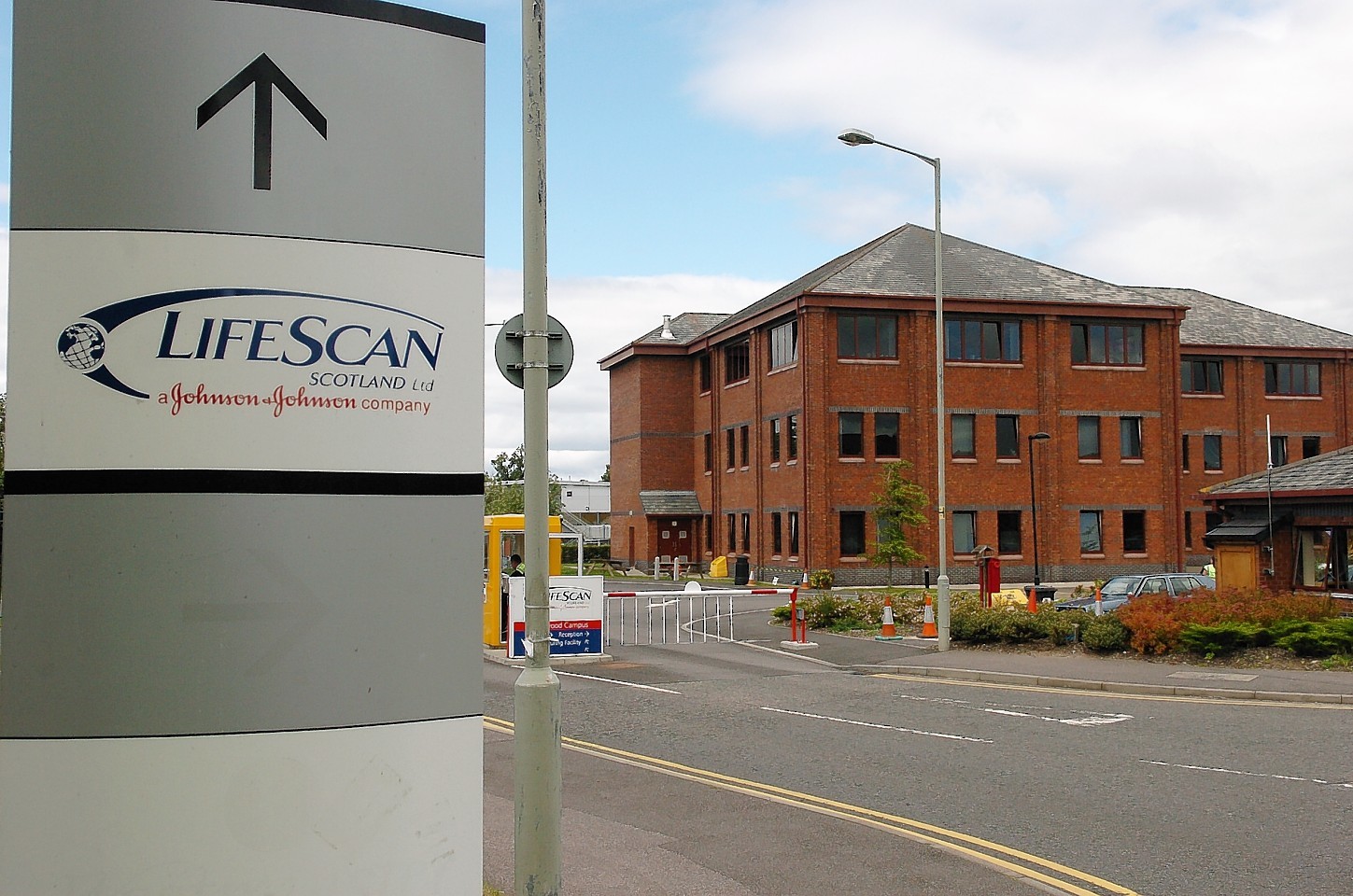The Highlands’ largest private sector employer has reported a large slump in profits and turnover for the third year running.
LifeScan Scotland, part of US healthcare giant Johnson & Johnson (J&J), saw pre-tax profits fall by 17% to £65.2 million in 2015, according to annual accounts released by Companies House yesterday.
Turnover fell by 9% to £141.7 million as the Inverness-based company continued to feel the impact of “adverse market conditions” and “strong competitive forces.”
The same factors were cited when the firm’s annual results for 2013 and 2014 revealed drops in profits and turnover. In 2012 the company achieved increased pre-tax profits of more than £103 million and turnover of £175.9 million.
Employment levels at the business remained stable last year, with average workforce numbers growing marginally to 1,113, compared with 1,106 in 2104. Of those, 850 were involved in production.
LifeScan Scotland’s main product range includes it OneTouch blood glucose monitoring systems, which are available globally.
In his strategic report, contained in the annual accounts, the firm’s managing director, David McMillan, said that overall the directors were satisfied with the company’s performance in 2015 and its financial position at the year end.
Mr McMillan said: “Turnover has decreased by 9% year on year primarily due to adverse market conditions including a difficult economic environment and strong competitive forces which have impacted pricing. As a result operating profit has decreased by 17%.”
Looking to the current year’s trading, he said the LifeScan Scotland’s markets were expected to remain competitive.
He added: “The development of new and existing products and processes continues to be important to the success of the company in all areas of the business. Management remains confident that the company will continue to perform well in the future.”
According to the accounts, the firm’s highest paid director in 2015 earned £176,416 in salary and benefits, excluding any gains made on the sale or receipt of shares, compared with £427,452 the year before.
LifeScan Scotland was created in 2001, when J&J acquired the UK assets of healthcare device company Inverness Medical.
In August this year J&J announced an £8.7 million investment in the Inverness company, including a £1.85 grant contribution from development agency Highlands and Islands Enterprise (HIE).
Andreas Kreitz, J&J’s worldwide director of diabetes care manufacturing, said the the investment would enable LifeScan Scotland to research and test alternative, more cost-effective materials and production methods that will increase productivity and and enable the firm to serve its global customers better.
Speaking at the time of the announcement, Mr McMillan said it was a “very clear signal from Johnson & Johnson that they are here to stay in Inverness.”
LifeScan Scotland yesterday declined to comment on the 2015 results.
